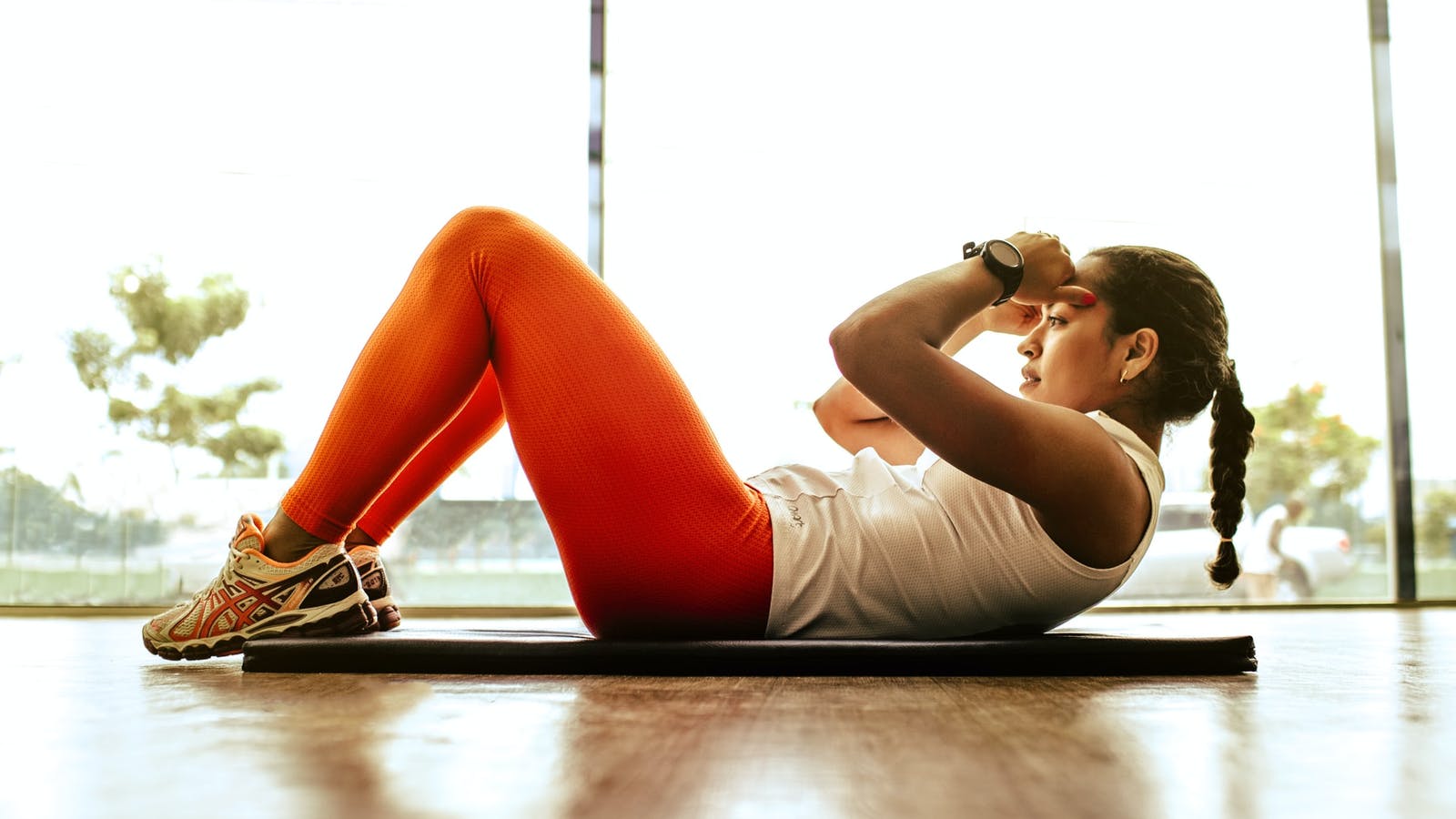Athletes are people who practice 6 hours of sport per week. An athlete performs more than 10 hours of sporting activities per week. Beneficial for physical and mental health, in small, regular doses, sport curbs the predisposition to a whole host of diseases and helps maintain weight balance and good cardiovascular functioning.
Practiced more diligently, physical activity may require the use of specific plants or nutrients in order not to suffer too intense negative effects, to avoid deficiencies, to optimize the functioning of the body and to improve recovery. after a competition or an intensive session.
Be careful, you don't become a sports expert overnight. After the difficult period of confinement linked to the coronavirus, many French people began to practice extreme sport, morning and evening, every day. We start sport with light practice and we establish good sporting habits over the long term.
Above all, the athlete must lead an impeccable lifestyle through a healthy diet without alcohol or drugs, quality sleep and good stress management. In this article, you will discover the keys to good health for athletes for practice without pain or problems.
Sports nutrition
Entire books are devoted to the athlete's diet, because it depends on the type of sport practiced "explosive or endurance", the period (training, competition, recovery), age, gender and others. individual settings. To avoid information overload and food anxiety, here are the most basic tips for both you and those around you:
- The choice of proteins is important and their distribution too. Ideally, 1 boiled or fried egg for breakfast, meat for lunch and fish for dinner. Always garnish them with aromatic herbs to reduce their acidifying potential: chives on eggs, herbs de Provence on red meat, tarragon on white meat, fennel, dill on fish with a squeeze of lemon.
- Raw or cooked vegetables for lunch and dinner with organic semi-complete cereals.
- Wholemeal bread or sourdough cereal for breakfast with butter, fruit and a ricotta-type dairy product.
- No or little wheat or dairy products at dinner.
- Low-mineralized water as a routine, all day, outside of meals.
- Water with sugar and salt during recovery exercise if sweating is too intense. Be careful, however, if you suffer from diabetes.
- For those who wish to lose weight through sport, know that the “afterburn effect” of sport takes place in the hour following the end of the sports session, so during this hour ONLY consume proteins: hard-boiled egg, can of tuna or sardines, slice of ham, chicken breast and above all no carbohydrates: no sweets, no dough, no bread, no biscuits.
Great food supplements for athletes
No more need to spend hours going through the content of 100 blogs, you will find in this article the practical sheet of great food supplements for an athlete in great shape.
Coconut water, the water of youth
Coconut water, from coconuts, is very rich in nutrients essential to the body such as potassium, phosphorus and calcium. This refreshing and hydrating drink is ideal after endurance sports. It contains electrolytes which facilitate glycogen recharging after exercise.
Vitamin C, the right dose of energy
A powerful antioxidant, vitamin C, is involved in the immune system and in countless physiological processes such as the synthesis of hormones, amino acids and collagen. His plus? It helps preserve the integrity of immune cells put in difficulty after major stress or an intense physical event. By strengthening blood vessels, it also facilitates the healing of wounds.
Vitamin C also improves VO2 max (maximum oxygen consumption). When it is combined with bio-flavonoids, it is even better assimilated and is released gradually. The body cannot, in fact, absorb large quantities of vitamin C at once and therefore eliminates them in the urine. There is no point in taking 1 gram tablets all at once!
The recommended intake of vitamin C is 120 mg per day, however an athlete can increase their intake to 500 mg, or even more in the event of exhaustion or illness to keep up.
So opt for tablets dosed at 500 mg. Chew 1 tablet in the morning with breakfast. Take a second one, possibly at the end of the morning or early in the afternoon. Natural vitamin C is not exciting, so you don't have to worry about insomnia if you take it in the afternoon.
Vitamin D, youthful bones
Vitamin D enhances the absorption of calcium to strengthen bones, prevent fractures and preserve our joints.
Glutamine, muscle maintenance
Glutamine is a healing amino acid that promotes muscle development by increasing the concentration of leucine in fibers and slowing muscle breakdown. Glutamine is very useful for athletes who train every day and do not allow the body to heal all the micro-injury processes in the muscles linked to sports practice, especially when this involves shock (combat sports, rugby) Taken before training, it helps prevent muscle fatigue.
On a daily basis, it is also possible to consume it in the form of capsules dosed at 500 mg by following the following treatment: 2 capsules upon waking up on an empty stomach and 2 at bedtime.
Omega 3, a toned heart
Omega 3s are excellent natural anti-inflammatories that protect joints as well as cardiovascular functions. Athletes like it to improve their performance, their recovery, limit body fat and reduce muscle aches. His plus? Omega 3 is also very beneficial for the nervous system, so it contributes to your general well-being and helps you better manage your emotions. To supplement naturally, flax and walnut oil are excellent, consume 3 tablespoons per day. In capsules, prefer capsules dosed at 500 mg and consume 2 capsules every day with dinner.
Probiotics, immunity support
Probiotics help the intestinal flora to replenish itself, especially after a long and intense effort such as a marathon, a trail or even a triathlon. It optimizes the function of the intestine, with a beneficial effect on the absorption of nutrients. Naturally, it is found in fermented products such as chouchout or kefir.
Fresh pollen, the absolute shoot
This superfood is rich in vitamins, minerals, antioxidants and even proteins. Fresh pollen is easily incorporated into our diet to combat lack of energy, deficiencies and stress as the competition approaches.
Spirulina, the assurance of iron health
Spirulina, a freshwater algae, has existed for more than 3 billion years and is said to be the best food supplement. It provides, in fact, a wealth of minerals (beta-carotene, iron, vitamins B12 and E) in a very small volume which makes it very practical. It contains in particular 55% to 70% proteins, very well assimilated by the body. It thus helps avoid cramps, muscle tension and intense post-workout inflammation. Several supplements are possible:
- In tablets dosed with 500 mg of spirulina: consume 2 tablets in the morning and 1 tablet at 4 p.m. outside of meals the first week then 3 in the morning and 3 as a snack in the following weeks.
- In powder form, one teaspoon in a glass of water every morning and as a snack in a green juice or smoothie. The taste and smell are very strong, to be reserved for the brave.
CONTRAINDICATION: in case of anticoagulant treatment or cancer
NOTE: increase the doses gradually because more than 1.5 grams per day can disrupt transit and cause migraines. Spirulina is a freshwater algae whose iodine content theoretically does not pose any problems. In case of thyroid dysfunction, as a precaution, start with small doses and check with blood tests for TSH, T3 and T4.
Marine magnesium combined with vitamin B6, long-lasting performance
Magnesium, a mineral of well-being, is a powerful regulator of the nervous system, it ensures better resistance to fatigue, stress, anxiety and better sleep. It is made for you and your loved ones. The tired body draws heavily on magnesium reserves. Take it long-term for a 3-month course, 10-day break and repeat. The marine form is more assimilable than the synthetic one. In general, it is associated with vitamin B6 to promote its assimilation with calcium-rich lithotome. If the supplement also contains vitamin B1 it's a bonus, because it boosts cellular energy.
In ampoule format, consume 1 ampoule in the morning and 2 ampoules in the evening at bedtime for 3 weeks.
In the form of capsules dosed at 150 g, consume 1 capsule for breakfast and 1 for dinner.
In case of recurring cramps, it is interesting to combine magnesium with calcium and potassium.
Happy training everyone! Take care of yourself.

